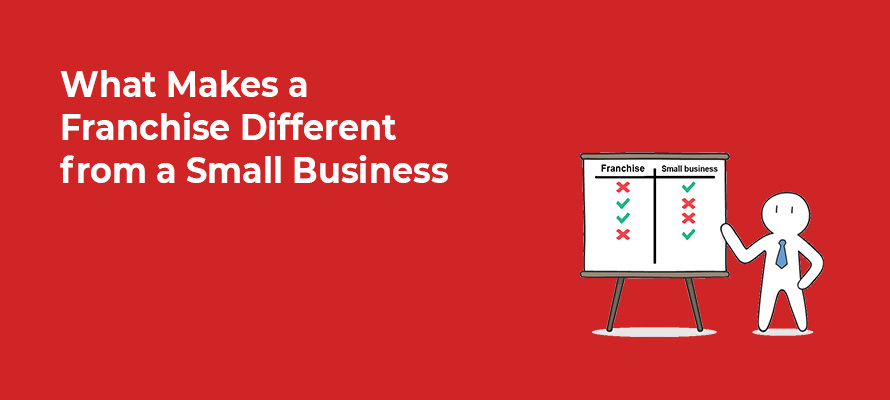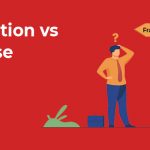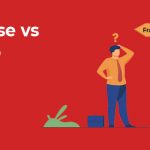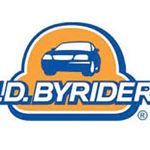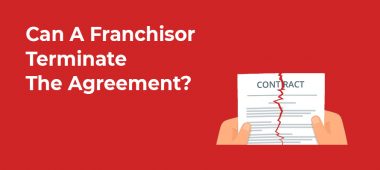The reality is that franchises can be both small and large businesses.
On the one hand, many of the other participants in this thread outlined that franchisor control is not an indictment of size (small or large). The reality is our federal and state governments have established similar “controls” in terms of labour law (i.e., how to pay), codes of practice, etc. So I would echo other comments that franchises could be considered a small business.
But, and this is a big but. Multi-unit operators control over 50% of franchises. In the food and restaurant category, this concentration is even more prevalent, with 75% of the 60,00o franchises owned by multi-unit operators. These multi-unit operators are not small businesses. For instance, Carrols Restaurant Group is a publicly-traded company that owns 578 Burger King restaurants (franchise units) and drives over $600M in revenue per year. Carrols is not alone. According to the Restaurant Finance Monitor, the average multi-unit franchisee had over 80 locations and generated over $100M in revenue per year.
The trends suggest multi-unit franchising will continue to grow and further outpace the single unit, small franchise operators. The multi-unit operators benefit from the scale (purchasing, administration, market) and professional management. In many ways, franchises are moving from small business to big business.
Small business and Franchise are both business models that you can own.
There are differences between them As each of them has its own set of pros and cons. there is more leg work required in launching a business as you might well be having the idea of operating for your own business to be very appealing but making the business successful than buying pre-made Franchise off the shelf and running it. The distinct dissimilarities between small businesses and franchises are highlighted so you can better choose between what is a better option for you.
Method of Operation
Along with the strategies and framework, franchises come with a complete package of a business model that made them successful, and the contract makes the person bound to follow them. You may run the business however you like, but business opportunities, however, are left to you. But the thing is the previous owner will not provide you with the initial support to get things started. You are left on your own.
Branding
the branding elements are provided by the Franchisors to incorporate them with all the designs that make those customers identifiable with the Franchise. The trademark or trade name can not be re-branded by your Franchise, or you can’t change it.
A small business can be branded; however, you want it. You can choose to re-brand or carry its current branding or the entire domain to your liking if you have bought the business from someone else.
Support and Training
Whether you are new in the field or an experienced professional, you are provided with the training from the franchisors, As, you need to make sure for getting succeeded and they will even always provide ongoing field support. If you get started from scratch, you are your own trainer As, In small businesses, there is no such deal. You are still your own trainer, even if you have bought it from someone. If you get to succeed or not with the business tt does not concern the previous business owner.
Investment
Buying a whole brand that already has a big national or international recognition Franchises inquire large investments. A monthly royalty fee is also paid to the franchisor, which is a small fraction of the revenue you made. In the case of a business opportunity, The investment is comparatively small As you are purchasing a small portion of what the franchisee gets from a franchisor. Once the initial payment is made by you, the business is all yours to do as you please. Also, there are no periodic fees involved. You do not have to pay anything else to anyone.
If you require directions, instructions, and you are new in the business, then you might want to buy a franchise. But you might want to operate everything your way if you are an experienced professional, Whatever the case may be, You can’t get the benefits and instant returns from a small business that you get from franchises. It can Typically, it takes years for doing a successful business. But you get faster returns on investments in the case of franchises that make up for the cash outflow in the initial stages.
It is a major career step to buy a small business. What type of business you hope to acquire is one of the first decisions you’ll need to make. Now, let’s have a decision about what to buy? A franchise or an independent business.
When deciding which type of business is the best fit for your personal and business goals, however, some key differences need to be considered.
Should you buy an independent small business or a franchise?
Some buyers are more likely to prosper as franchise owners while others thrive as independent business owners. There are no easy answers to the independent business versus franchise dilemma, in reality. Instead, the factors need to be carefully evaluated that make the two approaches differentiate, Decide which one is right for you after talking to trusted advisers and with your family.
So, let’s have a look for actually which one is better a Should you buy a franchise or an independent small business,
- Ownership Model
A franchise is a lot different than a small business; From an ownership perspective, Franchise owners don’t get the freedom to change their products or services based on the changing market conditions or their personal desires, just as independent business owners have, To a large degree, the decisions about product lines and other variables are made by the parent company…
Independent business owners don’t get the security of knowing that product lines; on the other hand, ownership decisions and service offerings are already optimized and tested for the marketplace. In other words, although franchise owners had to sacrifice independence in making the decisions, they enjoy the security and stability that comes with a proven track record from belonging to a much larger organization.
- Cost
Independent business owners have more control over the investment decisions and timing, but higher investment costs to operate and buy the business. For example, business owners can delay remodelling or expansion plans if cash is tight, independent.
There are typically lower total investment costs For Franchise business buyers, but need the obligations to be fulfilled, that franchisors set. For example, franchise buyers are required to pay royalties on an ongoing basis in addition to an upfront franchise fee; The franchisor often has the right to dictate the timing and scope When it comes to investments and renovations of the remodel to franchisees.
- Brand Recognition
In most cases, when it comes to brand recognition, franchise buyers have an advantage over independent business owners. Unless the brand is proactively cultivated by the independent business seller, it’s unlikely that the brand recognition that comes with standard franchise business can be enjoyed by the business.
But it should also be recognized by the buyers that brand recognition can also have a dark side. All brand’s franchisees suffer if something happens by the franchisor or another franchisee that results in negative publicity; this is a risk that the buyers having independent businesses don’t have.
- Success Rate
Each potential acquisition should be evaluated on its own merits As a business buyer. Both independent businesses and franchises fail every day, and people clearly have success with both models at the same time. The key takeaway is that, whether you buy an independent business or Franchise, it’s important for you to thoroughly research the business and do your homework before your investment.
Ultimately, the decision to buy an independent small business or Franchise may boil down as a business owner to your personality. If you can’t see yourself relinquishing control over other activities and operational decision-making, then a franchise isn’t likely the right business model for you to continue with. But yes, if you prefer the stability, security, and benefits of participating in a larger organization, then opening a new franchise location may make more sense, then the acquisition of an existing franchise or the purchase of an independent small business.
Why do businesses franchise?
Broad advantages are as follows:
Faster expansion
the growth can be as quick as the time taken to find, If the Franchise is taken care to set up properly from the beginning,
Lower capital outlay
Once the model is established, the expansion comes mainly through the investment of franchisees, meaning it costs much less to grow.
Leaner ongoing costs
A franchise head office supports its network of business owners through a team of staff, but franchisees employ each outlet’s staff, maintain accounts, and so on.
Better performance
Because they have a vested interest in the business, franchisees will do what it takes to succeed, as opposed to a manager who is largely rewarded the same regardless. Retailers have reported as much as 30 percent turnover growth after converting a company-owned store to a franchise.
Strength in numbers
The best franchise brands are those that successfully integrate franchisees as a collaborative network of business owners, harnessing the considerable power of shared know-how, experience, and ideas from a group pulling in the same direction.
